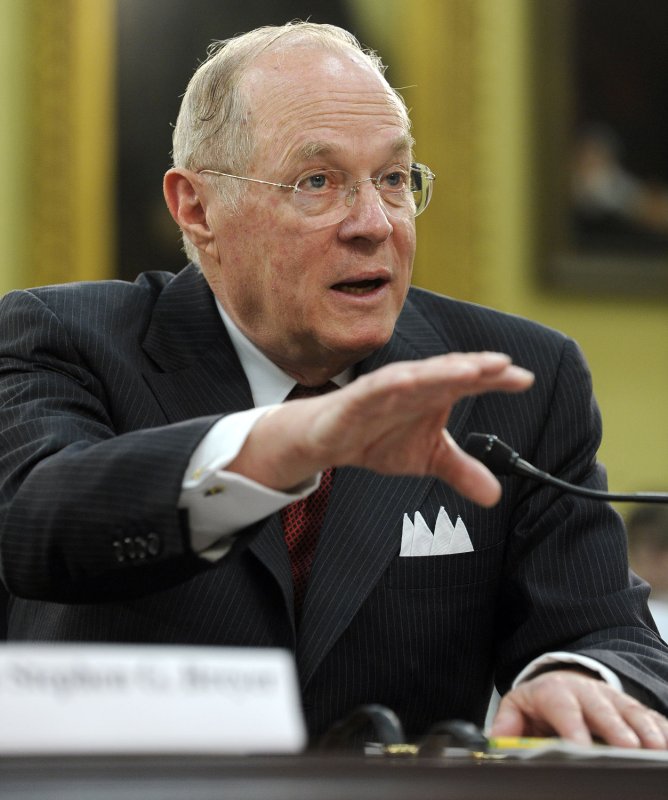Supreme Court Justice Anthony Kennedy testifies at a House committee hearing April 14, 2011, in Washington. UPI/Roger L. Wollenberg |
License Photo
WASHINGTON, May 23 (UPI) -- The U.S. Supreme Court ruled 5-4 Monday that federal judges had the right to order California to drastically reduce its overcrowded prison population.
The state had complained the order would force it to release up to 46,000 inmates from its correctional facilities.
California, which has the largest state prison system in the United States with 165,000 inmates, has the nation's worst overcrowding problem and has been fighting a budget crisis for years. Lawyers for state inmates argued inadequate medical care is "cruel and unusual" punishment banned by the Eighth Amendment to the U.S. Constitution.
Relying on a special master's report and other studies, a three-judge panel in San Francisco found the "current level of crowding far exceeds even the maximum safe and reasonable capacity of the California prison system, which, by [the system's] own determination, is [at] 179 percent design capacity for prisons holding male prisoners."
The panel said it concluded, "The constitutional deficiencies in the California prison system's medical and mental health system cannot be resolved in the absence of a prisoner release order."
The three-judge panel's order gave the state 45 days to "provide the court with a population reduction plan that will in no more than two years reduce the population of the ... adult institutions to 137.5 percent of their combined design capacity."
Most analysts said that meant California would have to release at least 46,000 inmates, about a fourth of its prison population, unless the Supreme Court reversed.
But Monday the narrow court majority affirmed the lower court's ruling. Justice Anthony Kennedy, a key swing vote, joined the court's four liberals in the ruling.
"The court-mandated population limit is necessary to remedy the violation of prisoners' constitutional rights and is authorized by the federal [1995 Prison Litigation Reform Act]," Kennedy's opinion said. "If a prison deprives prisoners of basic sustenance, including adequate medical care, the courts have a responsibility to remedy the resulting Eighth Amendment violation."















